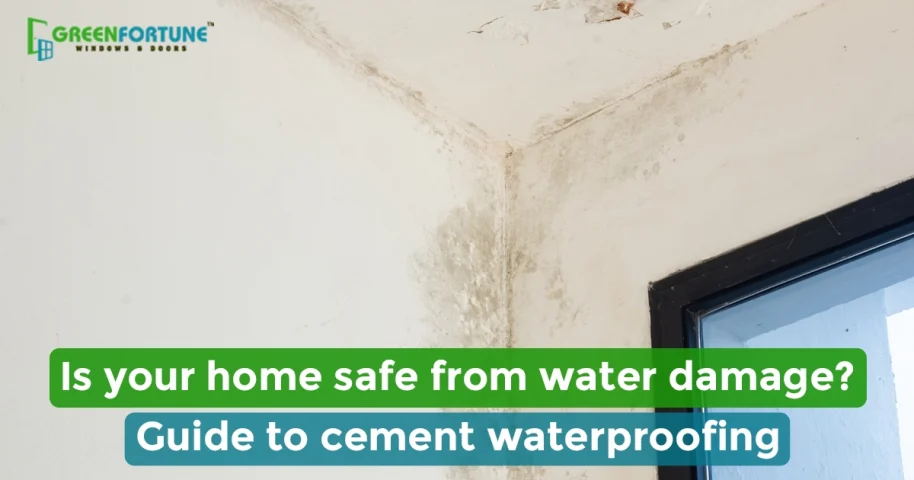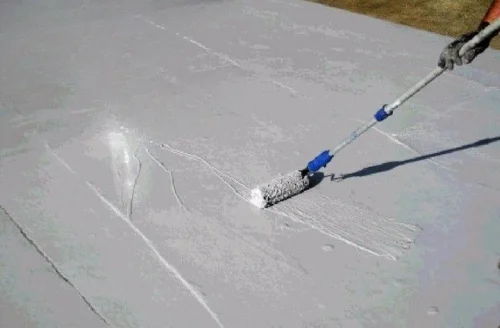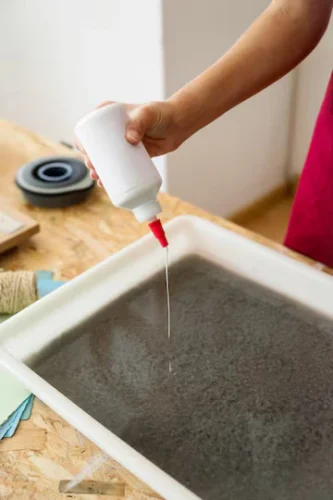
How to Choose the Perfect Safety Door Design for Your Home
February 17, 2025
Steps for building a foundation: A Detailed Guide
February 18, 2025Dampness is one of the most critical issues in Indian households. It not only looks unaesthetic but also damages your house's structure.
So, to deal with the issue of seepage and water dampness, take crucial preventive measures like using waterproof for cement. If you are building a new house, you need to waterproof your entire house for stability and strength in the long run.
Types of Cement Waterproofing
Source: Pinterest
Before knowing the types of waterproofing, we need to know what is cement waterproofing. Well, It is a method to protect a concrete structure like your house, offices, schools, and other places from water damage.
In the process, a coating of a specialized mixture is used to prevent the water from penetrating in the surface. The waterproof for cement is done in areas where there’s a presence of high moisture like roofs, foundations, basements, etc.
There are multiple types of cement waterproofing and each type has its level of protection
Cementitious Waterproofing:
The most common type of cement waterproofing is Cementitious waterproofing. In this process, a paste is created by mixing waterproofing chemicals with cement. Cementitious waterproofing is a good choice for places like kitchens, bathrooms, and basements as these are the places that are most exposed to moisture.
Liquid waterproofing membranes
This kind of waterproofing consists of the application of a liquid-based membrane that creates a flexible protective cover over the surface. It is a very good choice for waterproof cement for roof work because it gives much better waterproof coverage and protection from water permeation.
Bituminous coatings
Bituminous coatings are also referred to as asphalt coatings, and they are extensively used as a waterproof for concrete structures. This form of waterproofing is quite effective against both water and moisture while at the same time giving an additional layer of insulation. It is primarily used for foundations and concrete floor surfaces that it waterproofs.
Bituminous membranes
Waterproofing should be done through bituminous membranes in cement roofing structures. It has a self-adhesive layer that gives it complete water resistance and protects the concrete against harsh external influences, making it perfect for flat roofs, terraces, and balconies. This method is highly durable.
Crystalline waterproofing
Crystalline waterproofing is a modern technique of special chemicals that penetrate deep into the concrete and form crystals that block and seal water pathways within the structure. This technology improves the self-healing properties of concrete surfaces, making it an exceptional waterproofing product for basements, tunnels, and swimming pools.
Also Read: How to Stop Water Leakage from the Wall
Advantages of Cement Waterproofing
Check out the advantages of Cement Waterproofing:
- Strength & Durability: The solution of Waterproof for concrete floor lengthens the lifespan of the house by ceasing the water penetration affecting the eventual weakening of concrete.
- Prevents the Growth of Mold and Mildew: Moisture-sealed concrete surfaces trap moisture inside, leading to the growth of mold and mildew, which adversely affect indoor air quality. Properly done waterproofing of concrete serves as health insurance for most indoor environments.
- Reduces Overall Maintenance: Regular maintenance is expensive for waterproof cement roof structures. Proper waterproofing of concrete solutions will save you money for repairs after a long time.
- Increases Property Value: It means ensuring the long-lasting stability of your property against potential water damage by applying waterproof cement for roof applications it, which automatically adds value to your property.
- Improves the Integrity of Structures: Cracks and damages happen in water-soaked conditions, and buildings made from concrete develop such ailments. But, a good quality waterproofer for concrete will ensure the intactness of buildings from costly repairs.
- Protection Against Any Climate Condition: Heavy rainfall, high humidity, or temperature changes, all have their ‑ effects on the composition of the building. However, the application of waterproof for cement protects your structure against the sun as well.
Also Read: Stop Water Leakage from the Wall
Conclusion
Waterproof for Cement is very important for protecting your structures from moisture damage, enhancing durability, and reducing maintenance costs. By choosing the right waterproofing method, you can safeguard your home against harsh weather conditions, increase property value, and ensure long-term structural integrity.
And if you are looking for the best windows and doors you can consider quality Green Fortune Doors and Windows. They offer high-quality, durable, and eco-friendly solutions that enhance both aesthetics and functionality in homes. Their advanced designs ensure superior protection against moisture, contributing to a well-sealed and waterproof living space.
FAQ
1. What are the key factors to consider while choosing the waterproof for cement?
A: The factors you should consider while choosing a waterproof for cement are application area, moisture exposure, climate conditions, ease of maintenance, and budget.
2. What is the best material to waterproof concrete floor?
A: Polyurethane, acrylic, bituminous, and silicone are all good materials for waterproofing of concrete floors.
3 What is used for waterproofing cement roof?
A: Polyurea, bitumen, and liquid-applied membranes are used to waterproof cement roofs.









